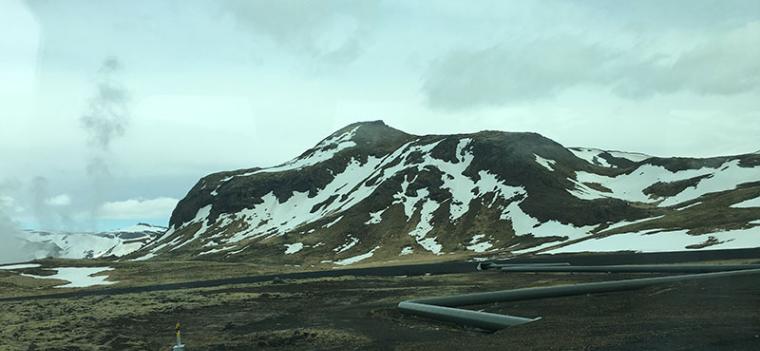News
- The rainforests around the Cisokan and Cirumamis Rivers in West Java, Indonesia are home to several species of endangered animals, including the Javan leopard and Java leaf monkey. Already heavily deforested and threatened by agriculture use and hunting, the landscape will be further affected by the construction of a much-needed hydropower pumped storage project. But with the help of a new approach, the project could conserve and expand habitats well above the without-project baseline as well as improve local livelihoods.
The rainforests around the Cisokan and Cirumamis Rivers in West Java, Indonesia are home to several species of endangered animals, including the Javan leopard and Java leaf monkey. Already heavily deforested and threatened by agriculture use and hunting, the landscape will be further affected by the construction of a much-needed hydropower pumped storage project. But with the help of a new approach, the project could conserve and expand habitats well above the without-project baseline as well as improve local livelihoods.
The World Bank is funding a pumped storage hydropower project on the Cisokan and Cirumamis Rivers in West Java, Indonesia. In a pumped storage system, pump turbines store energy by transferring water from a low reservoir to a high reservoir during off-peak hours. During periods of high electricity demand, the stored water is released through the turbines to the lower reservoir to generate hydroelectric power. The 1040-MW Upper Cisokan pumped storage project, estimated to cost a total of $900 million, would develop two dams and reservoirs, transmission lines, a power station, and an access road. The project objective is to increase power capacity and reduce the number of outages in the Java-Bali power generation system.
Recognizing the social and environmental impact that such a project can have, the Asia Sustainable and Alternative Energy Program (ASTAE) contributed $330,000 to support an Integrated Catchment Management (ICM) approach for the Upper Cisokan project.
The ICM approach provides a framework to address social and environmental impacts from the project, mitigate threats to biodiversity, and make improvements for local livelihoods. The objectives of the approach are twofold: biodiversity conservation and community development. One third of the population in the area lives in poverty, which drives them to turn to logging, slash-and-burn agriculture, and poaching—sometimes illegally—for their income. Through the ICM approach, the project would reforest the area and create habitat corridors that connect wildlife populations around human habitation as well as provide opportunities for alternative livelihoods for the local people through engaging in sustainable forestry management.
ASTAE’s funding is also designed with a focus on providing women, who can be disproportionately vulnerable to impacts from the project, with equal access to training and services.
“With the ICM approach, the project will not only help create a reliable energy supply in West Java with a smaller environmental footprint and more sustainable community development, but it will also provide us with knowledge we can then apply in similar projects in Indonesia, including a second pumped storage which is currently being planned by PLN,” says Peter Johansen, Senior Energy Specialist at the World Bank.
As a first result of the intervention, in March 2015, PLN and Perum Perhutani (Perhutani), the state-owned forestry company, signed a Memorandum of Understanding in March 2015, followed by an implementation plan in September 2015. The parties will conduct concerted ground checks, which include taking stock of field conditions and marking boundaries of biodiversity important areas, followed by preparation of a re-planting scheme and activities to promote forest conservation through the active involvement of the local population. Forest partnership agreements with the communities are being made to change the way that forest land is used for income generation, to transition from the practices of logging and slash-and-burn to the development of non-timber forest products such as fruits and medicinal plants.
From September 14–18, 2015, the World Bank conducted a knowledge exchange program in the Philippines to show Indonesian officials examples of successful ICM approaches to minimize the impact of geothermal development in forest areas—an issue very similar to the one faced by pumped storage projects. A delegation of representatives from PLN, Perhutani, and the local and national government met with Energy Development Corporation staff and representatives from communities and local government in the Philippines. The experiences from this field trip will be used to further develop the ICM concept for use in small hydropower and geothermal energy development projects across Indonesia.
